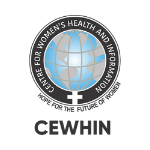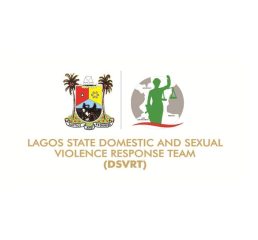In the light of recent rape, sexual assault and even murder of some women in Lagos state and around the country, the Lagos State Domestic and Sexual Violence Response Team (DSVRT), in partnership with the Centre for Women’s Health and Information (CEWHIN), Spotlight Initiative comprising the United Nations Development Programme (UNDP) Nigeria, United Nations (UNWomen) and UNESCO, the Lagos State Judiciary, as well as other sister agencies, recently held a virtual multi-stakeholder dialogue to discuss ways to improve the state’s level response to Sexual and Gender Based Violence (SGBV).
The purpose of the meeting was to enable strategic actors have a joint review of response to SGBV, develop strong networks and partnerships among other issues.
Giving the welcome address, Moyosore Onigbanjo (SAN) lamented that, despite several measures put in place by the state government, women and girls are still exposed to sexual violence and assault daily and hoped that the dialogue addresses challenges and gaps in the system.
Dean, Faculty of Social Sciences, UNILAG, Prof Olufunlayo Bammeke, who was the lead speaker, touched on several factors that are helping SGBV thrive in Nigeria, including religious, social, societal and cultural factors.
“So many things prevent women from leaving bad marriages and relationships such as economic factors, stigmatisation from her family and society, fear of what would happen to her children and so on. CSOs and SGBV responders must eschew victim blaming, corruption, stigmatisation, secondary victimisation and must embrace improved capacity training. We also have to get rid of the negative attitude of the police nationally, judicial officers lack of knowledge regarding rights of survivors, and lack of trust in the legal/criminal justice system. Many survivors sadly cannot access the justice system.
“Because people, who were abused as kids, tend to become abusers themselves, we mustn’t leave children out of the enlightenment process; we must re-educate our boys. We are also doing mandatory prosecution and this simply means that in cases of known rape and assault, even if the survivor refuses to prosecute for reasons best known to them, the government would take up the case and prosecute the perpetrator. There’s need for increased awareness and re-orientation, sensitisation on what constitutes assault and sexual violence. A lot of women don’t know what constitutes sexual assault and believe because it’s their boyfriend or husband, they must endure all manner of things; this is false. We also need to foster, train and re-train community advocates and involve men in this fight. Finally, we must involve religious leaders because they are very important in this fight. As we have come to realise, most survivors first involve their religious leader when they’re experiencing SGBV before involving any other person.”
Dr Oluwajimi Sodipo, a sexual assault physician, spoke on the gaps and areas of opportunity as it pertains to health. He divulged that presently, there are still a lot of myths surrounding sexual violence and a lot needs to be done to address that.
He said the fight could be improved upon by training frontline workers, strengthening the process of DNA analysis and the court system, more Sexual Assault Referral Centres (SARCs), improved advocacy and collaboration between the government agencies, stakeholders and the general public. Director of public defender, Dr Babajide Martins, who spoke on the Administration of criminal justice system to SGBV: Gaps and challenges in prosecution, listed major gaps to include investigation, trial and post-trial challenges, lack of prompt investigation and transfer of cases from where the assault took place.
Others include the need for DNA and robust investigation of crime scenes, time wasting tactics and intimidation of survivors by perpetrators and their families.
“We need to remove the stigma around sexual violence. Even if evidence was informally obtained from an accused, it can still be used in our courts.
We also need to institute the witness anonymity order and video recording, wherein the video can be transferred to other jurisdictions (no matter where it is moved or how many times it is moved) or played in court rather than have the survivor keep recanting her statement every time to a new police or judge.”
On the role of forensics in solving SGBV, Centre Director, Lagos State DNA and Forensic Center, Dr Richard Somiari, revealed that forensic evidence is most useful in ‘stranger cases’ (where the identity of the rapist is unknown to the survivor), serial cases, cases where the suspect is denying, violent cases and cases where the victim is unable to express themselves either due to age, disability or mental incapacity.
“To improve SGBV response, we must standardise education, equipment, resources and training for responders, establish a dedicated Lagos State Crime Scene Investigation Unit (LA-CSI) and enact laws that will allow the collection of DNA for entry into the Lagos State offender DNA database,” he said.


